Learn to make income with a podcast
Join the 5-day training
Profitable Podcast Bootcamp
Come Hang Out!
Learn How to Consistently
Make Income With a Podcast
For Faith-Led Entrepreneurs
Join 5-Day Profitable Podcast Bootcamp!
Podcast Launch Checklist
Steps to start and launch a podcast from start to finish
Should You
Start a Podcast?
TAKE THE QUIZ
AND FIND OUT
STEP BY STEP PLAN TO START YOUR ONLINE BUSINESS
Complete Business Blueprint
Is My Group Coaching Program Right For You?
Choose the option below that best describes you!
Have a question?
Ask Stef a question about her resources
or program!
Will podcasting make you money?
Play around with my Profitability Calculator!
Meet Podcast to Profit Alumni
Students and graduates who are profiting from their podcasts
from psalm chapter 18
Spiritual Battle Plan
defeat the enemy, strongholds and spiritual warfare
Hey Friend!
Today we are doing something super new and fun and we are going to learn all about how to self-publish a book! If it’s been on your heart to write a book, memoir, published lead magnet, etc – please take a seat.
Siobhan Jones is one of my clients and she is pure GOLD. She blesses us today with the entire self-publishing process and helps us understand how it all works – from idea to promotion!
If getting your message into the world by publishing a book has been on your heart, this one is for you! Enjoy.
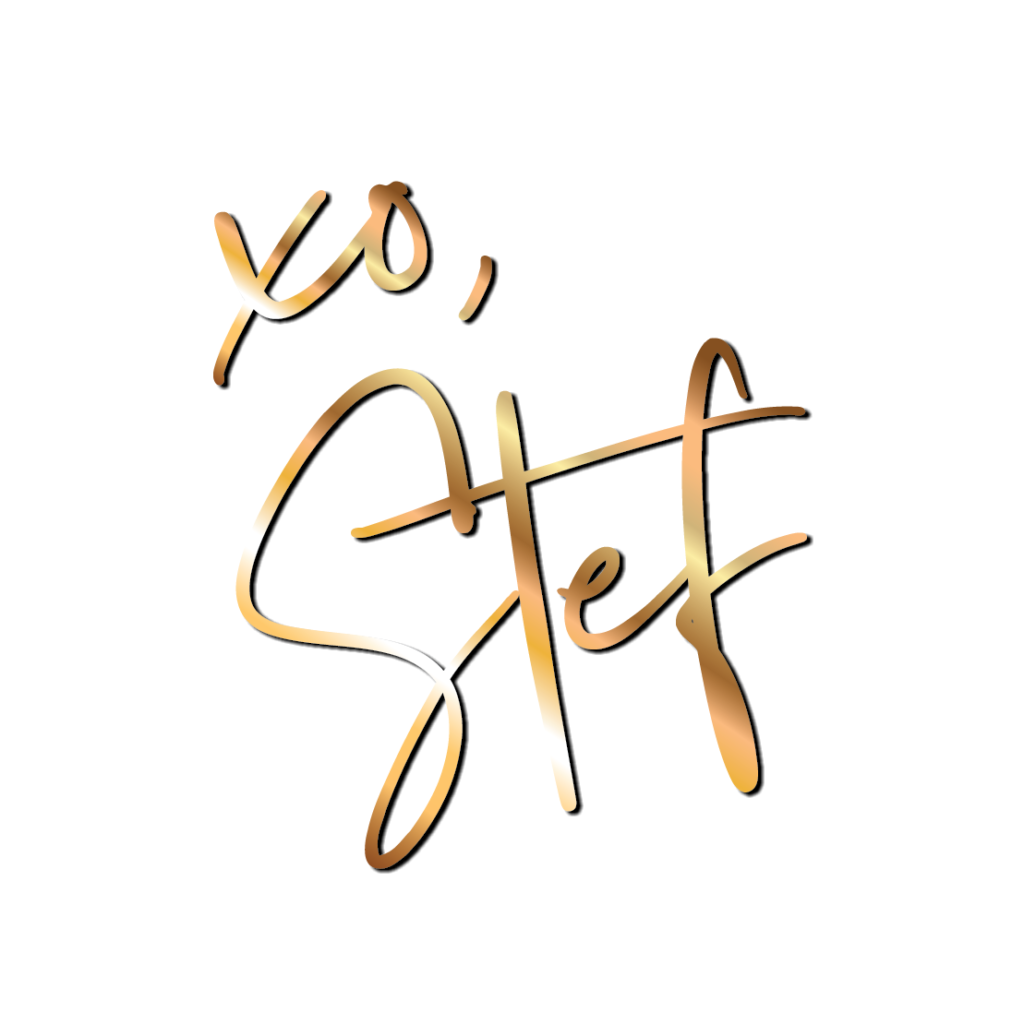

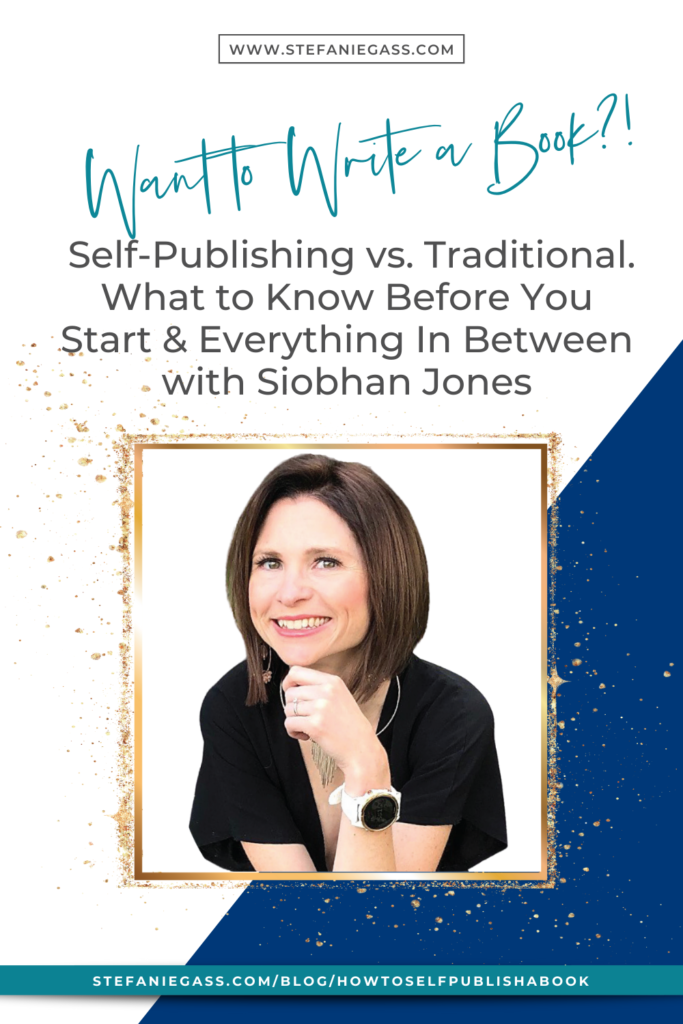
FULL EPISODE TRANSCRIPTION:
(00:00):
Hello there, friend! Happy Monday! I hope you’re ready for a great week. You are back from your turkey hangover. What did you do all weekend? Did you shop, did you black Friday shop? Did you watch football? What did you do? Tell me all the things. We had all the turkey and then went to visit my husband’s family in Ruidoso at their cabin, Did watch football, did eat too much and here we are ready to have an amazing Monday.
(00:28):
I actually leave for my CEO retreat this coming Wednesday. Wow. Time flies and I’m so excited about it. This is the most fun, incredible thing I do for my business and myself every single year. So pouring into my CEO retreat and going to be figuring out some big audacious goals for next year that I cannot wait to share with you, guys.
(00:52):
I can’t wait to do the year recap as well because, oh my goodness, this year has blown my socks off. And I can’t wait to walk down memory lane with you and show you and tell you all the cool things that have happened and really how those things happened. I think that’s super important for me to help you get where you want to go.
(01:12):
But any hoo today, I have something so cool for you. I’m interviewing one of my clients. Siobhan Jones and Siobhan is actually a writing mentor and a self publishing coach. She came to me about a year ago and we built out her podcast, which is so good, The Unlocked Creative. And then from there, we ended up building out her courses, The Writer Unlocked and The Unlocked Author.
(01:34):
And what Siobhan does is she helps people create their first draft and then get it published, self published, that is so I know writing is on so many of your hearts writing a book and having either your story in the world as a legacy, or having a book as a lead magnet or writing a book that God has spoken to your heart but how do you actually do that? Siobhan is the woman for the job.
(01:58):
She is so fun to listen to because she has got an accent that will make your dreams come true. Sorry Siobhan but it is so true. She is a mom in real life, a wife and a cat mom. And I just love this about her. Her cat always would come and climb straight up on the keyboard during our coaching sessions. And it just made me laugh so hard and her cat would cry. It sounded like her daughter all the time. Like is your daughter okay? She’s like, oh, it’s my cat.
(02:25):
So funny. Just fun fact Monday over here. So grab a notebook and pen. She gives away so much tactically in today’s episode. I mean, she gives you basically the play-by-play of self publishing your own book. So y’all be sure to head over and check out her stuff. Everything can be found at the unlockedcreative.com. I hope today’s conversation blesses you.
(03:52):
Hi, Siobhan Jones! Welcome to my podcast, my dear friend!
(03:57):
Hello! I’m so excited to be here! Thank you!
(04:00):
Tell everybody who you are and what you do.
(04:06):
So I spent a long time not knowing what I wanted to do and in communications in government. And I realized at one point that I didn’t want to be promoted anymore. And then I started writing and podcasting and didn’t know what on earth I was doing. I found you and got clarity on my calling and now I help women to plan, write and self-publish their book.
(04:35):
And you’re a mama.
(04:40):
Oh, yes I am. Yes.
(04:42):
One of my favorite things about our coaching sessions y’all is Siobhan’s cats will come and climb on her lap and climb with a laptop. It just makes me laugh.
(04:52):
Yeah. They’re definitely social creatures. So that’s great. And as is my five-year-old daughter Hazel, so yes, I’m definitely trying to, you know, I found a way to integrate everything in and that’s part of how I help people to plan, write and publish their book is to look at all the things going on and just get into it.
(05:18):
That’s good. So what has it been like? We’ve almost been working together probably close to a year now. What is that then like? What is it to come in with this concept and have me totally scrap it and have you start over and then look at what we’ve built now, you know, you have two amazing courses, a book, a thriving podcast. Talk to us about like, what is that like to work with me for an extended period of time?
(05:47):
Incredible. You know, I mentioned just earlier that I needed clarity on my calling and that’s exactly what you did in the first session that we work together, you know, and you helped me ditch a weird brand that I had created, which may or may not have involved cats. And, you know, you really walked me through how to create a real brand and a real business based on a really strong foundation that feels good for me.
(06:18):
And I know is in alignment with my calling and, when the doubt has crept in over time, because always, no matter what you’re doing, if it’s a new thing that you’re doing or something that’s slightly outside your comfort zone, you may feel a bit of doubt creeping in and I definitely did, but you’ve held me to account and just call me out on that. And that’s about growth.
(06:44):
And I guess the other incredible thing during this experience has been the growth in my relationship with God. And that’s just something that I did not expect to happen at all. So that’s been just life enriching and all the amazing things that our relationship with God brings.
(07:06):
So, I always get this boost of motivation after each session with you, Stef. And that just drives me on, you keep me focused, my head’s down and I’m focused on the things that matter for the business and for the calling. So you’re absolutely there all the way. And you’ve been there to nudge me and course correct and get me to stretch and grow in ways that I never thought that I would.
(07:34):
Awe… I just love you. That’s all such sweet feedback. And one thing I want to say about you, if we really think about where you began, which was from scratch and what we have now, which is this absolute clear brand, two courses, self published book, podcast, your branding’s on point, you have a website now you basically have my entire business. You’ve done it in less than a year.
(07:59):
And I want to say that there’s something so beautiful about being coachable and that’s something that you bring to the table. I can bring that energy, that faith infusion, I can bring you the tacticals and the strategy, but unless you’re willing to do the work and to go to hard places that make you uncomfortable, it’s not going to work for you.
(08:20):
You have to work in order for something to work for you and that’s something that you’ve done so beautifully is you’ve shown up. You’ve been accountable. You’ve been consistent. You execute on every homework that I give you. And I just want to say, I’m so proud of you for doing that because it’s uncomfortable.
(08:36):
Ah, thank you so much. Yeah. I mean, I think anybody who is working with you or know that there’s no judgment, it’s, you’re very open and approachable and also practical. And you know, it’s like, if you don’t show up with an attitude of learning then why are you doing what you’re doing? Sort of thing.
(09:03):
Right. I love that. Ah, well, thanks for sharing all of that. I wanted you to come on the podcast because I believe in what you’ve created so much. I want you to bless the women today. And some men who are listening with this knowledge about self publishing a book.
(09:22):
This is not something, I mean, I self published a journal a couple of years ago, but it was kind of like an afterthought and I really didn’t take it seriously. And I know that this is something that is a big goal on many people’s hearts, Siobhan, it’s gosh, maybe I have a story to tell. Maybe I want to have a book that is almost like a lead magnet or an opt into my entire business model. I think I might want to write a book.
(09:47):
And then when I write this book, what the heck do we do with it? What does it look like to publish? What does it mean? So that’s what we’re going to discuss today. And I want to begin with the question. How do you decide if it’s time to write a book?
(10:03):
There is never a perfect time. So let me break that down a bit for you. We have two reasons why we don’t. And the first is literally we feel like we have no bandwidth in which case it’s about really looking at your schedule in life and rearranging it to focus on your values, which I’m available to help with. But, it needs to feel easeful along with everything else that’s in life, so integrated.
(10:34):
The second is much bigger and harder to overcome, and that is fear. And that fear shows up in many different ways, whether it be procrastination or distraction or, scrolling social media, just not starting, which is definitely what I did for about a decade. But it’s being done all the time by every author. So every book you see, they have overcome it, I’ve done it and you can too.
(11:02):
And so that is really the only thing, not time that is stopping you from writing your book. We don’t know how much time we have here on earth to do our thing and, to share your story, how would you feel? This is a bit morbid, but how would you feel if you got to the end of your life and you hadn’t written your book? If you feel that depth of sadness, then it’s time to turn that around. You can choose. Now is the time to turn that around.
(11:34):
And, I sort of think like back to when I was growing up and I’m sure many people listening have felt this, that there are times in your life where somebody has written something in a book that just resonates so strongly with you, you feel like they’re right there with you and feel like books and your stories can help others to connect with life. So in terms of the right time, I would absolutely pray and ask God, but I guess don’t expect that He’s going to say not now.
(12:11):
That’s a really great advice. So basically what I’m hearing is start writing because even if you start and you decide, oh gosh, this is going to take longer than I thought. Or maybe I’m not ready to publish for a long time. At least you’re writing and you’re getting in the practice and you’re learning. And maybe the first thing that you write doesn’t end up being the thing. But at least you’re starting.
(12:31):
I’m a huge advocate for start before you’re ready. Take action. Even if all the end results aren’t clear. I mean, you guys all know this about me. I’m like I’m gonnaa jump in and figure out all the pieces later. So that’s exactly what Siobhan is saying. And the two pieces to look at as to why you’re not, one is this no bandwidth part. And then that’s fixable. It really truly is, where there’s a problem, there’s always a solution.
(12:56):
And then number two is this fear or the procrastination, which in my opinion is just an excuse. So let’s get out that pen, that paper, that laptop, and let’s just start. So where do they start? What should you consider before you sit down that very first time with this idea on your heart, this maybe outline in your head, but nothing yet is on paper, Siobhan, what should you consider? Or is there something you need to plan before you actually begin?
(13:28):
This is a really great question. And I think that if something’s on your heart, it’s time to write and the things that you should consider before writing it, your pen and your note pad and your laptop. I know that and I truly believe that starting is the hardest part. So if you’re sitting down and you’ve got your pen and your note pad, and you just get this overwhelming fear of, well, what do I write? Where do I start?
(14:06):
Take a deep breath and just take in what’s around you. And it might be an annoying truck reversing and beeping, or you might be able to smell a beautiful candle or a memory might come rushing in about a sentence that somebody said to you that day, you can use those things as the first sentence on the page, and then you can keep writing.
(14:33):
And if you feel blocked after the first sentence, what I recommend is to just set your timer on your phone for two minutes and don’t take your pen off the page or your fingers of the keyboard and just write without judging yourself around what it is that you’re writing. It’s not like you’re sitting for a test or anything, you need to be able to just let go take what you have in around you and just begin the process.
(15:07):
So I think we tend to over-complicate what we need before we write. I guess the other thing that I would say is absolutely, if this is something that you’ve never done before, or you feel like you’re called to write for a particular reason, why do you want to write?
(15:31):
Do you want to get your book, your message about your business calling out into the world? Is that something that is motivating you? Is it just a hobby or is it for a legacy? I think those questions are really key because they’re the goal, they’re the things that are going to motivate you when things do get challenging. And they will, because writing is sort of like life it’s up and down, but we keep going anyway.
(16:03):
That’s such great advice and it makes me, I love everything that you said, but it gives me such anxiety. Cause I’m like, but Siobhan, don’t I need an outline? Don’t I need to know where I’m going? Don’t I need to know how many pages that I need to write? Those thoughts come out in your mind around, I can’t just write with no end goal. What what do you say to that?
(16:29):
Yeah, I think you absolutely can write without an end goal, but I understand as well as a kind of type a personality, or Enneagram one or whatever you want to say there is, so I guess from my perspective, it’s interesting because the way that you write maybe different to the way that you usually behave in life. So I’m very type A in life, but when I’m writing, I’m very fly by the seat of my pants and that can be positive or negative depending on what I’m writing.
(17:07):
But, I guess, you can come to writing with no expectation. You could, so some of the things that can be useful for people are to actually set aside particular sessions. So if you want to set aside a time, say 10 minutes, 15 minutes to do an outline of all the things that have been floating around in your mind, absolutely do that.
(17:33):
And then the next session could be, fleshing out what that outline is if that’s the way that you prefer to operate. I would say, as a starting step is work out what works for you, because what works for me is not going to work for everybody.
(17:51):
I love though the almost the challenge to everyone to almost try that riding with no expectation, because just like with podcasting, when I’m in P2P and I’m coaching everyone, and I’m talking about, you got to leave room for Holy Spirit, it’s the same thing in writing.
(18:07):
If you’re over-complicating what the chapters are going to look like, and you’re trying to structure this whole thing and this whole narrative and this whole beginning, middle end before, you’ve actually put your pen down, how can you leave room for holy spirit to show up in your writing and to lead you?
(18:21):
So I love almost like a blend maybe of, and again, find what works for you, but this blend of, if you feel led for the outline, great, but then show up to the outline with a lot of room to just write. And I loved your timer hack, set a timer for two or five minutes and just don’t allow yourself to stop. And I bet what happens is that you keep going, right, Siobhan? You’re like, oh, the timer went off. Like I’m not done. I have another thought I got to get out.
(18:48):
That may be what happens, but just don’t have the expectation that that’s going to happen. And then it’s probably more likely that that will happen.
(18:56):
That’s really good. So this is the starting and that feels good. So I’m sure then comes the hard part of finishing. Okay, we’ve got this rough draft, let’s say that you’ve completed a rough draft. Whether it’s going to be a personal story memoir type thing, or it’s going to be a business tool, like, for example, let’s say I wrote one on how to start a podcast or something like that. And you have a draft, what now?
(19:27):
So, the next step is always editing. I think what you want to do is work out what you want to do with this. And it goes back again to, why did you want to write in the first place, is it to get your message out into the world? Is it to leave a legacy for your family?
(19:57):
I think it’s really important to be very clear about what your intention is before you even go through the editing stage, because that can take a long time to get through depending on what you’re writing and depending on, like if you just kind of flew by the seat of your pants or if you planned it. So there are benefits and pros and cons to both avenues, but I think work out what it is that you want to do with your book.
(20:30):
And there are essentially if you’re looking at publishing your book, which is what many people land on and what drives people to write a book in the first place, there are essentially two pathways. And so one of them is the traditional publishing route. If you’re looking at a book so hard copy or ebook or both.
(20:53):
And then you have self publishing, which is something that has evolved sort of in the last 20 or so years with changes to print, production, quality and things like that. There’s a lot in there. It’s working out, okay, well, which path do I take next? If that’s the decision that you want to take to publish.
(21:18):
So I want to talk about those that are sitting here right now, going, if I wrote something, I would definitely publish it, which is where my mind goes. If I’m going to sit down, I’m going to write something, whether it even be a legacy work, like I would still want it published. And definitely if I wrote something for my business, I would want that published.
(21:37):
So let’s, let’s go down that road, Siobhan, and talk about how would you decide between, because I know nothing about traditional publishing, but I know that people have these publishers and they’re like, oh, I got a publishing deal or got a book deal. Like, is that better than self publishing? What does that look like? What’s the time and cost differences, just high level between those two options.
(22:01):
So for many years I thought traditional publishing was the way to go. And for some people it absolutely is. And for some types of books, it absolutely is, such as children’s books, for example, and that’s just a print quality issue. However, I think the key differences between self publishing and traditional publishing, so I’ll just recap.
(22:34):
So traditional publishing is where you write your book, you get it edited, and then you submit your manuscript either to publishing agents or to publishers directly. And essentially they get, thousands of manuscripts every year.
(22:51):
And they’re looking at what is going to resonate in the market at that point in time that they’re looking at your manuscript, and the potential, 12 to 18 months. But usually what happens is the traditional publishers will tend to publish things that they know are going to succeed. So that’s a great option, if you can get a publishing contract. Fantastic, wonderful. It’s a great path to take.
(23:23):
With self-publishing, this is a whole new world, and I’ll just sort of spell out the key differences here around self publishing and traditional publishing. They’re really about the first one is stigma. So, self publishing has had a bit of a stigma around it because people are publishing books that the literary merit in the publishing world has seemed to be low or the print qualityisn’t great.
(23:58):
People haven’t put effort into their cover designs, it looks unprofessional, all these things, that has changed a lot. And it’s now something that traditional publishers will actually look at self published books to see how they’re going in the market. And then authors are looking at contracts with the traditional publishers now based on the books that they’ve self-published.
(24:22):
So it’s a very different environment, but the stigma is changing. There is still stigma. And some of that is because there are some dodgy operators in the world of publishing who tried to get money out of people to like thousands and thousands of dollars to self publish their book with little kind of expected outcome. So there’s definitely stigma around the quality of self publishing, then there’s the royalties.
(24:49):
So the difference between royalties is that you as a self-publisher get much higher royalties because there’s essentially no middle man. You are the publisher, so that’s really important to remember, particularly from a business perspective so, it’s a more, it can be a more economical option to go that way.
(25:14):
The traditional publishing route, definitely the publisher will get most of the royalties, they also have the supplier network that they use that they need to pay. So your royalties are going to be probably reduced. However, you know, you need to think about things like scale, the traditional publishers have those distribution networks as well. So, there’s a balance.
(25:37):
The other thing is rights. So if you are a self publishing, you own the rights to your work. If you are going through the traditional publishing route, the publisher owns the rights. So if you want to change publishers, there’s legal implications involved there. The other thing I would say is that self publishing is very much about project management. So this can be really exciting for people who like planning and it is actually a process that is quite simple to go through.
(26:10):
It’s just that there are quite a few steps, so simple steps, but quite a few. And the great thing about it is that as a self publisher, you can choose the suppliers that you work with and that can influence the budget that you’re working with. So in terms of budget, you mentioned that you ask the question, how much does it cost, like roughly?
(26:33):
Well, with a traditional publisher, they’re taking on the cost and the risk of publishing your book as to whether it’s going to be successful. So they will take on the cost. If you’re self publishing, the investment is in your hands. So you could decide to spend $20,000. I self published my book.
(26:56):
So a 50 page book for 1500 Australian dollars that included cover design, graphic design, type setting, a full editing process. So proofreading and copy editing. I did the structural editing myself, the platform cost. So one of the platforms does charge a fee, but that was my choice.
(27:24):
And then I didn’t do so much promotion on this book because that wasn’t my focus when I set out with the intention to publish. So there are all these different kinds of levers that you can work with and adjust the price depending on what your budget is.
(27:38):
So much gold in there. Oh my goodness. So I have a full page of notes of traditional versus self-publishing right now. Thank you for being so in depth on the pros and cons, the other one that I don’t know if you said, but then I wrote down was self-publishing is a lot faster because traditional publishing, like you said, if you even get seen, if your manuscript gets looked at and reviewed, it could be 12 to 18 months, two years, and it’s just sitting there. Siobhan is that correct?
(28:08):
Yeah. I mean, I’ve interviewed an author who said they had 400 rejections before they had their first contract with traditional publisher. So, that took her years.
(28:21):
Wow. And I mean, $1,500 all in for you to do it right. I published my journal. This is funny. I published my journal, it was like two or three years ago, maybe more. And I did that whole thing for 50 bucks, Siobhan. I got the cover on Fiverr, and my dad had proofread it. I made it in Canva. And gosh, I mean, I don’t promote it at all anymore, but it made me two grand throughout the lifetime of the journal.
(28:50):
And it was a learning experience like that one journal, wasn’t the thing, the thing forever that I was going to market, but it was so cool to see that I can have a published work, whether it’s a journal or a book in the world for under a hundred bucks, if that’s what you want it to be, which again, what is it for versus, oh my gosh, I could have a legit full out professionally done cover type setting, proofreading, copy all this stuff, like basic marketing plan promotion for 1500 and that’s AUD, so cool.
(29:22):
Thank you for sharing all those things. So let’s say your expertise is in self-publishing. So let’s say that our listeners going well, if I did this, listen to these pros and cons, I would choose self-publishing. What does that process look like? Where do you begin when you say I’ve decided to self publish and can you just give us a few of self publishing your first book?
(29:45):
Absolutely. So the first step is always editing your book, and that comes down to that thing about quality. And, I just sorta quickly mentioned here, the thing about quality is that when you’re reading a book and you know, I’m sure many people have read a book and come across a typo, it actually interrupts the reading process.
(30:09):
So there’snot just about the stigma of self-publishing, it’s actually about the experience that your read is having. Firstly, editing, you need to get an ISBN. That’s a unique book number that every book needs to have to be available on a platform and you can get that for free on platforms or you can pay and have your own. There’s some benefits and pros and cons to both options as always. And then you need to look at, okay, well, what do I need to do to register my book?
(30:51):
And that’s just choosing the platforms that are available. There are a lot of platforms out there. My favorites are, Amazon, which is Kindle direct publishing and here in Australia, Ingram Spark because they have global distribution networks. So choosing the platform that works for you.
(31:11):
Then there is laying out your text, like a book, and you can just do that in word or whatever word process you have, and then making sure that your book gets type set. And that’s all about getting your book print ready. And we do that for both ebook and print. Then you want to go out and get your cover design done and get it done by somebody who understands what you’re trying to get at.
(31:40):
I’m not a visual person. So this was really crucial for me to work with somebody who have really great experience in publishing books before designing the book and then reviewing the text. Then what you want to do is really clearly outline all the metadata that you need to upload your book. So that’s about preparing your book and uploading it to the platform. And then, of course, you want to think about promoting your book and that’s kind of it.
(32:10):
Oh my goodness. I have 10 steps, guys, I’ll recap for you, to self publishing your book, editing, getting your ISBN registering where you’re going to market the book, Amazon, Ingram spark, probably a lot of other options there four, make sure you have texts that reads like a book, five type setting, six cover design, seven is review the text, write your final draft, eight metadata, nine, uploading it, and 10 promotion. And you are literally done.
(32:41):
That sounds so doable, but also elusive because they’re like, what, how do I? We’ll talk to them about all the cool stuff cause you have a podcast that literally goes step-by-step and helps you understand each micro step in this process. So Siobhan will tell you about that.
(33:00):
She also has a course, but before we talk about that, what are the roadblocks that are going to come up as they’re writing this book? What are the roadblocks, the limiting beliefs, what are the things that are going to keep them from finishing this process and what can you give them as advice or tips or guidance so they know this is coming.
(33:21):
There are going to be roadblocks. And I think first it’s really about working out which one it is that you’re facing. And the key ones really are, is it the inner critic? Is it lack of motivation? Or maybe your life has just sort of become a bit overrun with all the other to-do’s in life? Is it your perception about writing? So do you see it as a to-do rather than a little sanctuary?
(33:49):
So if it’s the inner critic, this is a huge challenge and my biggest challenge, and you need to be able to note its presence, note that it’s there and then keep writing anyway. And if it’s super loud, you can write down what it’s saying and see it for what it is, which is lies, but don’t hate on it because it’s actually part of your ego’s self protection mechanisms.
(34:13):
So welcoming it in, which seems like kind of counterproductive is actually going to help turn down the volume of your inner critic. So the inner critic is the first thing that’s definitely going to pop up and it’ll come up at the times when you least expect it, but you’ll have the strategies to be able to deal with that.
(34:31):
Motivation is really about that why, knowing why you’re writing and, feeling really aligned with it. If you’re not feeling motivated, some of the signs can be procrastination and you go off and clean and, usually you’re not so much into cleaning, but what you need to be able to do then is breathe in things that you love to do.
(34:55):
So go to the movies, read a great book, listen to an author interview, know that there’s no perfect time to write as well. So your life, if it has become really full, this is really about looking at the boundaries around what you have in your life and essentially sanctioning out parts of it to be able to have that beautiful writing time.
(35:20):
And then that sort of plays into the whole, what is your perception about writing? Because if you see it as a space, as this really kind of meditative part of your life, then it’s much easier to integrate it in and make it a habit.
(35:37):
Oh my Goodness. So much gold. I literally have like four pages of notes, Siobhan, eventually I’ll be writing a book, but you know, maybe after this episode I can start.
(35:48):
Looking forward to reading it.
(35:49):
I know. Me too, because I have to see what that would even be. I love those tips. And I think your advice on those is so cool, like this whole inner critic concept, and this can work for anything that you guys are dealing with when that voice comes in, that comparison or that you’re not good enough storyline instead of shoving it away, going, okay, I see you. I hear you. I’m going to acknowledge that you’re here. Thank you for trying to protect me.
(36:15):
I think that’s a beautiful way of saying, of acknowledging these fears that you have instead of ignoring them, but then working through it anyway. And then I absolutely love to bring in the things you love for the motivation. I’ve never heard that before. And I think that’s so good instead of trying to force your way to keep going, take a moment and go get some fuel in your life, some soul fuel, some stuff that you love and then come back fresh.
(36:40):
Amazing. Everybody’s sitting here going, wow. If they’re listening to this episode, they’re probably highly considering, or if not in the process of already writing a book, so Chavonne, how do they come and learn from your podcast? Tell them what’s on the show for them. And then talk to them a little bit about the two courses that you have.
(37:01):
So my podcast is The Unlocked Creative, and you can find it anywhere you get podcasts. And I cover anything there about writing, about starting to write, about finding time to write, why writing a book is good for business and all the things that you need to be able to integrate writing into your life. And if you’re thinking about self publishing, I do have a process in the podcast that you can step through to work out if it’s right for you and all the kinds of things that you need to consider there.
(37:36):
I also have two courses. So one of them is called The Writer Unlocked and really the motivation for creating that course was just the incredible gift of creativity that reentered my life after a decade of not writing and not knowing where to start and kind of fumbling about figuring it all out by myself and working out a process that works, being able to share that with women who want to write their books.
(38:07):
So that course is all about how to start writing, what you really working out, what you really want to write about and getting in the practice of writing and finishing your draft. So that is available from the website. I also have a course that you can sign up for the wait list now for.
(38:29):
It is about how to start from editing your book and get right through to self publishing your book. I step you through all of those types of mentioned today and it’s without the overwhelm. So you can really be free to focus on all of those steps and enjoy the process while you’re doing it.
(38:49):
And what is your website?
(38:52):
My website is theunlockedcreative.com
(38:56):
Thank you so much for your time today, my friend, and for sharing with us, all of your knowledge for being so tactical and specific, and I feel so excited about writing and even exploring that option. I know that so many people who have that on their heart feel a little more clear about, and almost just the permission slip to just start it doesn’t have to be such a big thing. It doesn’t have to be so scary and self publishing can be easier than you think. I mean, how long did it take you to write and self publish your book?
(39:28):
Look, it was less than three months.
(39:31):
It’s amazing. Versus the 10 years you sat overthinking about getting a traditional publisher, right?
(39:39):
Absolutely.
(39:41):
Oh my gosh. Well thank you for being on the show and you guys, I hope that this blessed you go check out all of Siobhan’s stuff. She’s amazing. God bless, friends.
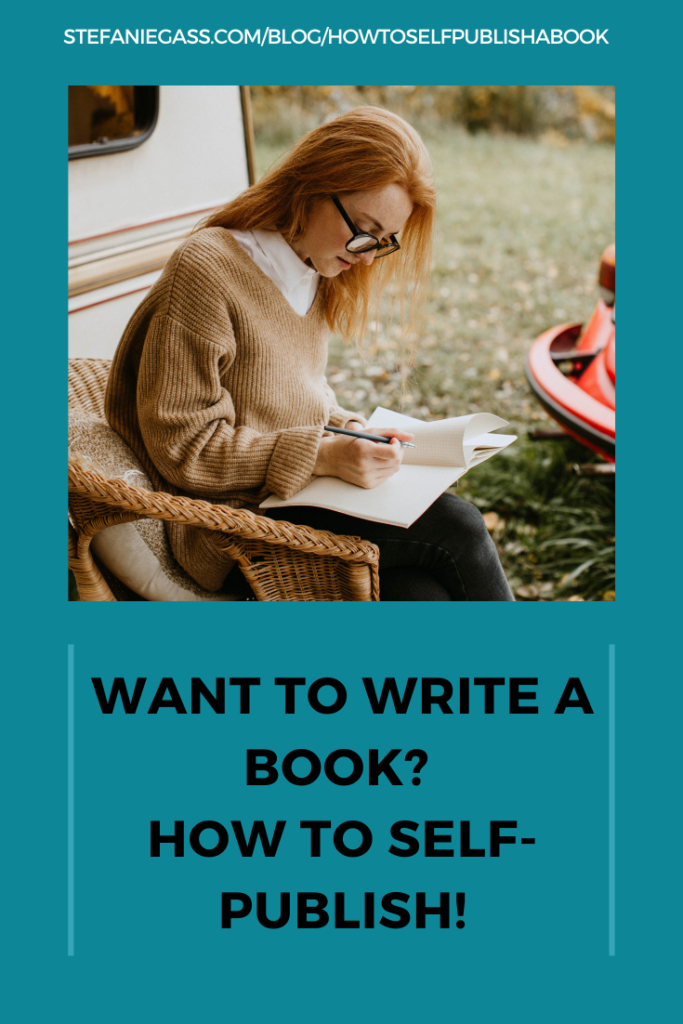
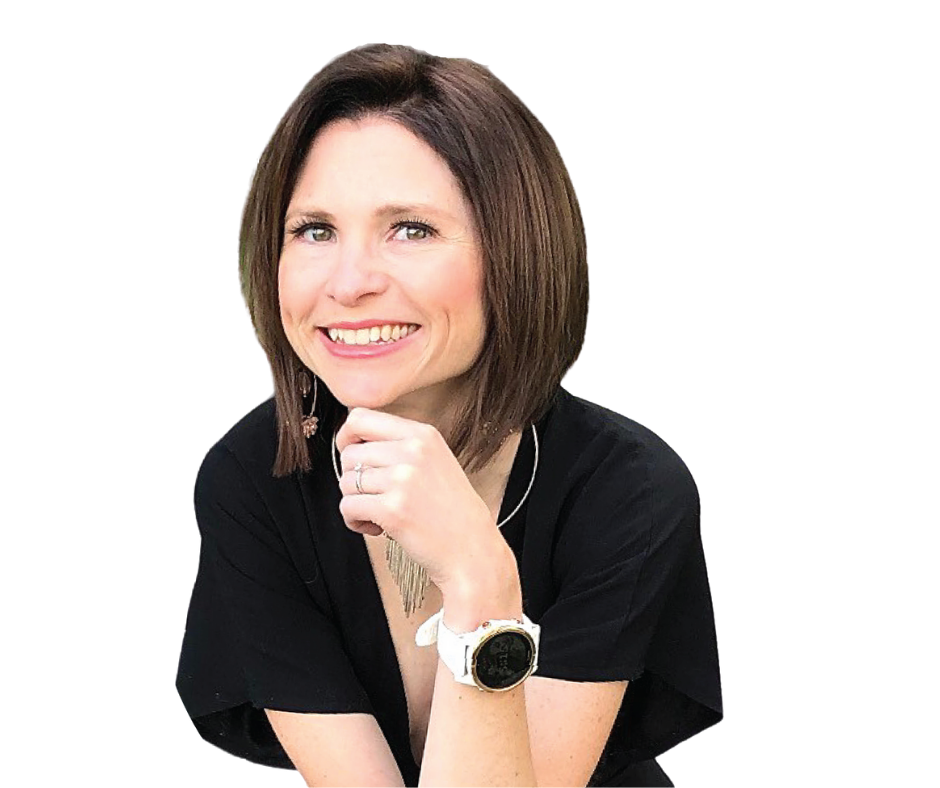
Learn How to Consistently
Make Income With a Podcast
For Faith-Led Entrepreneurs
Profitable Podcast Bootcamp
READ MORE
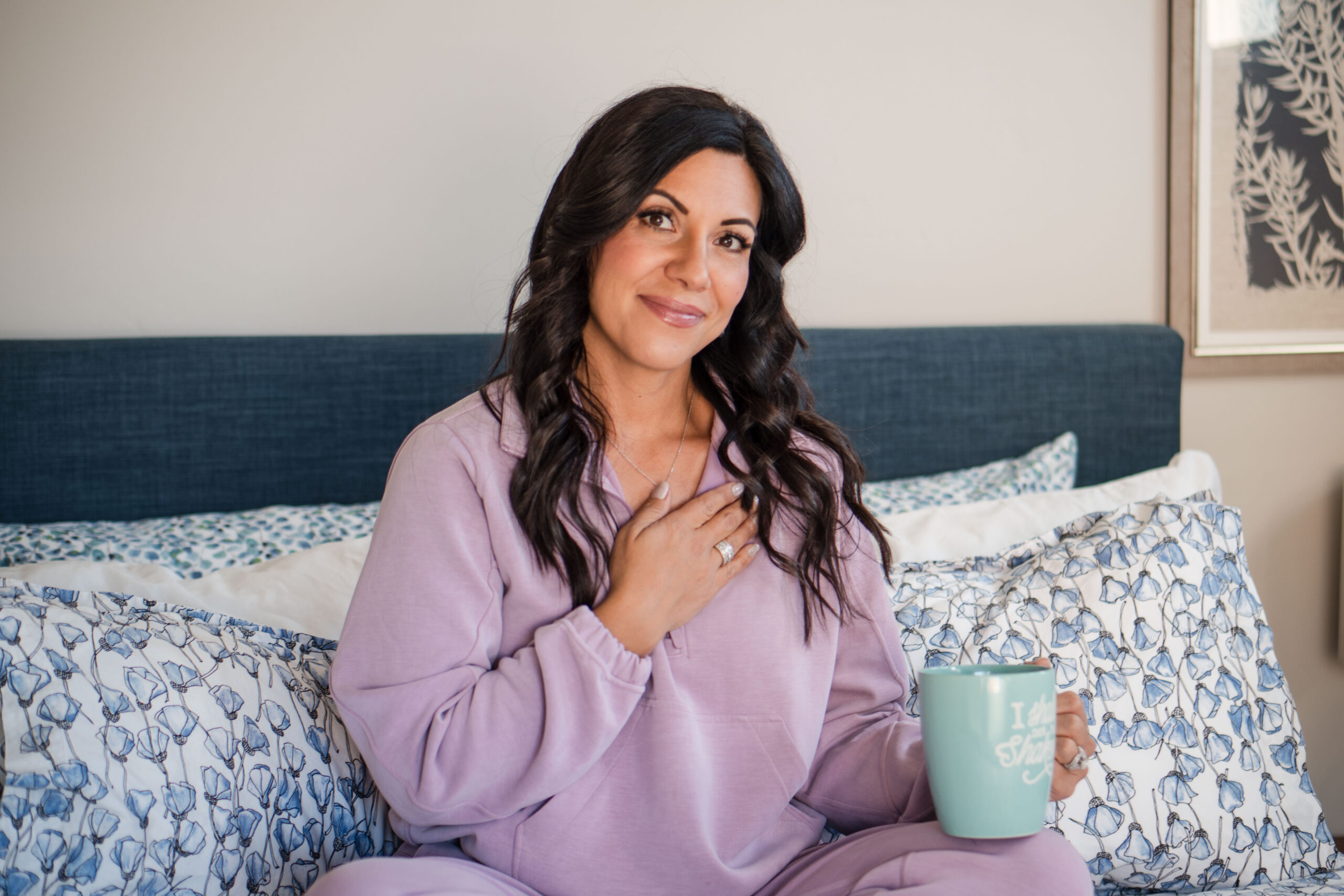
Here are 6 ways I’m scaling my business to 7-figures God’s way and not the world’s way, all without social media.

READ MORE
It’s been a hot minute since we’ve had a conversation around whether podcasting is right for you. A few people recently asked me, “How do I know for sure that podcasting is right for me or my business model?” That’s what I will discuss with you today.

READ MORE
As a 7-figure Christian business owner, Stef shares biblical business advice straight from the book of Proverbs.
READ MORE

This post is for my MLM Girlies or anyone marketing a personal brand or physical product. It’s a live coaching session with one of my students about having a personal brand versus product branding, and what this might look like for you.
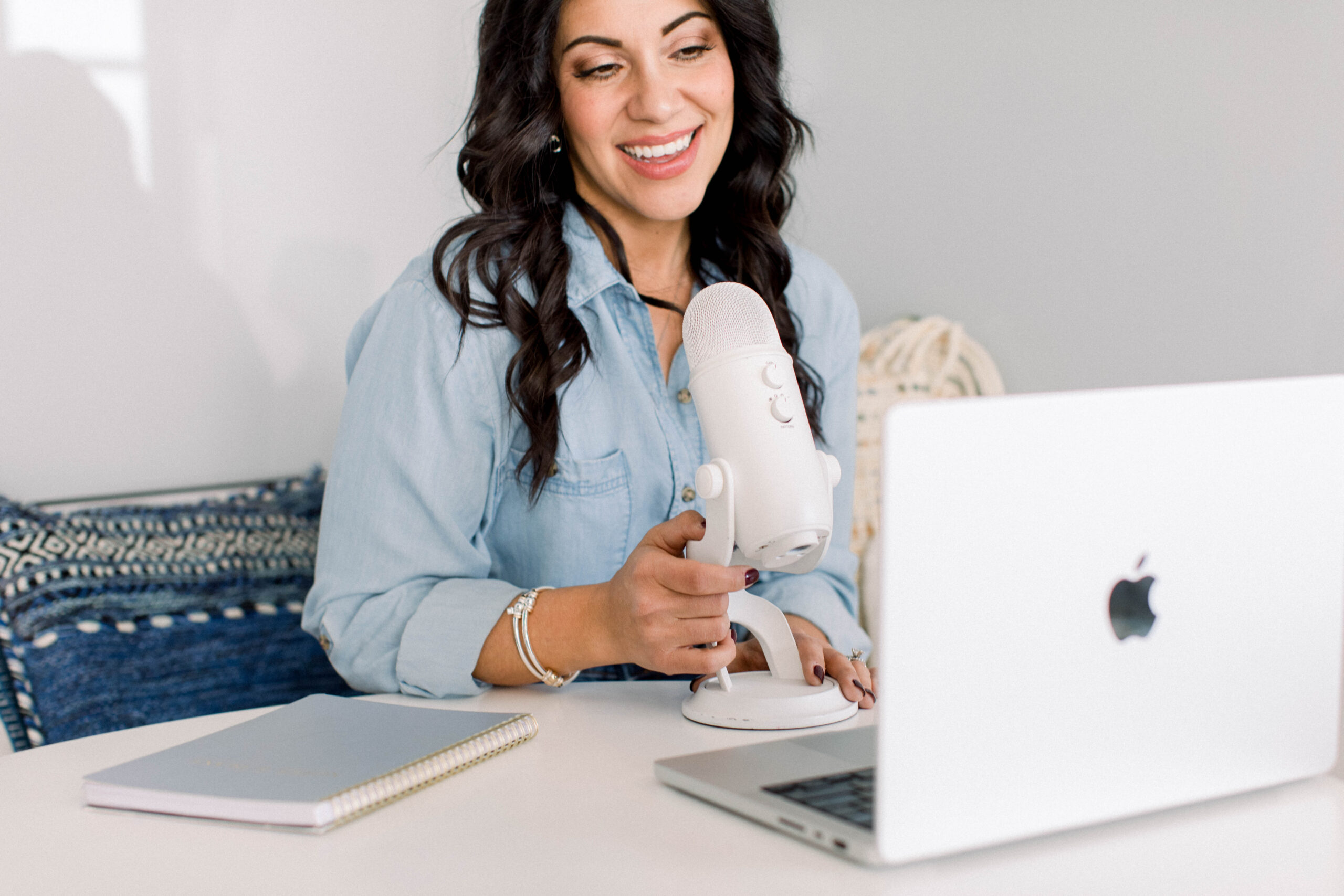
READ MORE
Join me as I chat with Podcast to Profit graduate, Monica Topete, on going from burnout to a top 2% podcast and hundreds of organic leads.
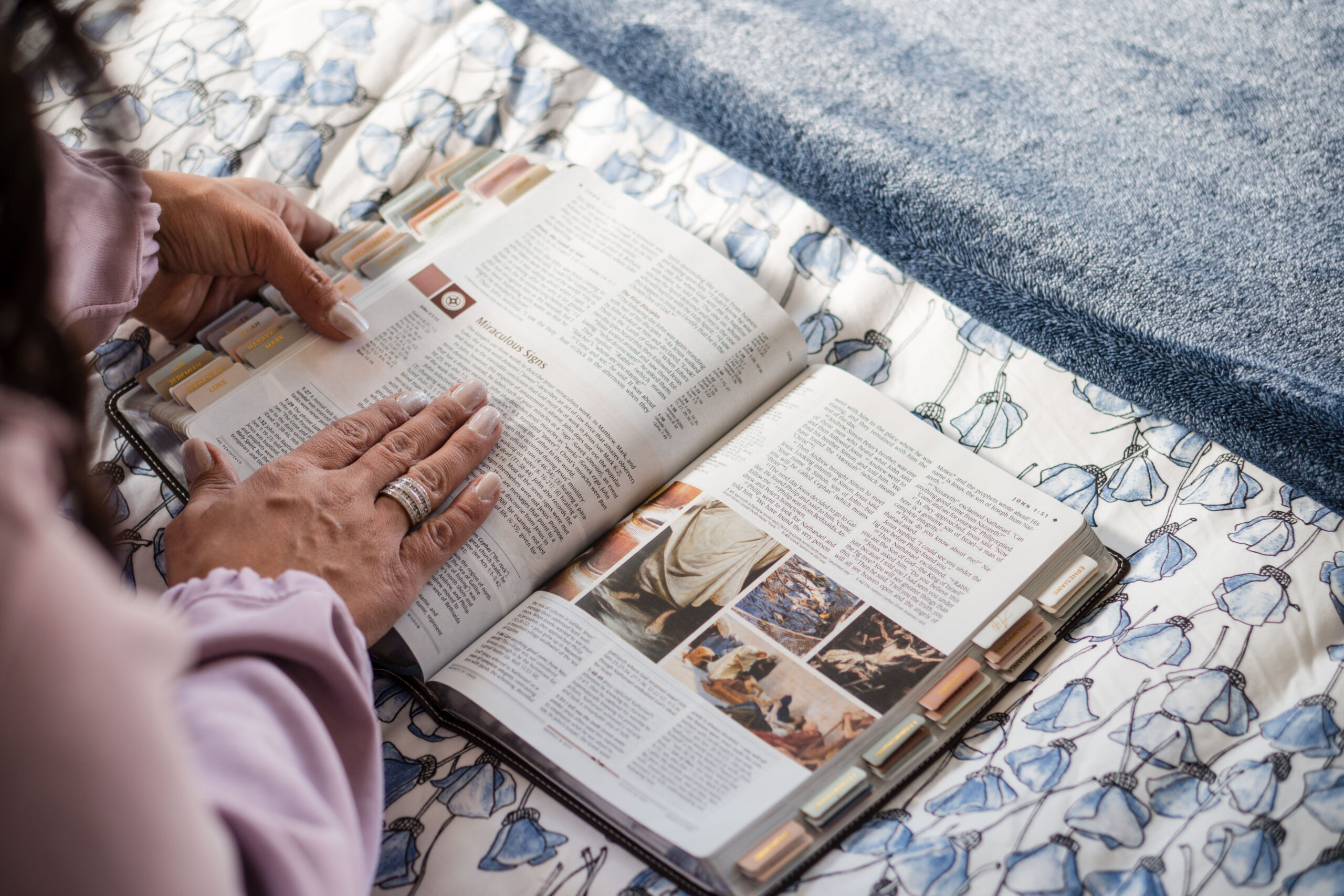
READ MORE
Have you wondered how to use the Bible in your business? What if I told you the best strategy isn’t another mastermind, launching another thing, or listening to another podcast? The best strategy comes from knowing how to use the Bible.
READ MORE
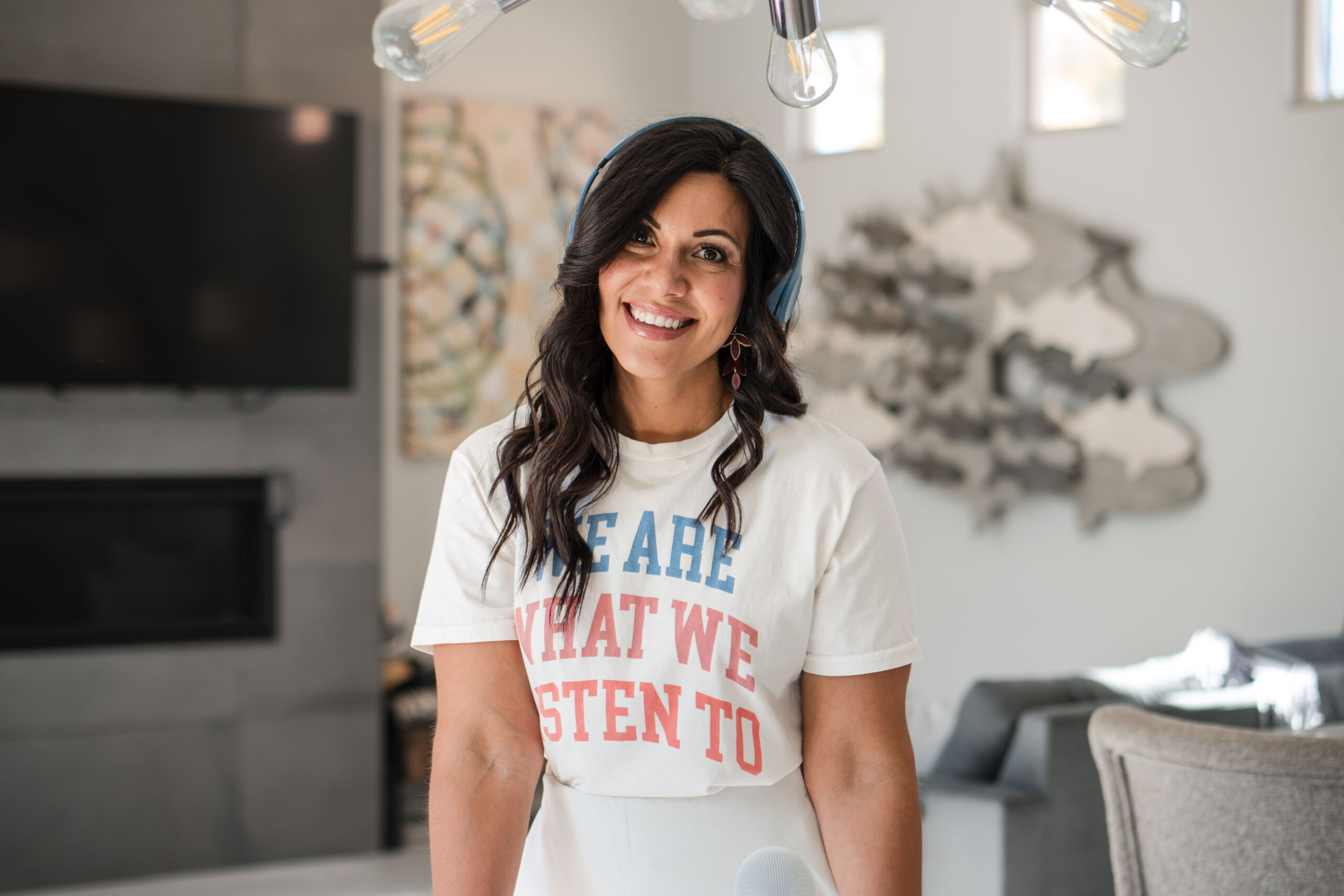
Join Stef as she discusses five ways you can hear from God in your business. The Holy Spirit will lead you if you are paying attention!

READ MORE
If you’ve ever wondered how to go from zero subscribers to millions with your podcast, this post is for you. Whether you’re just starting with no subscribers or you’ve already launched but are struggling to grow, I’ll break down all the things that will help you get your podcast to flourish and be that vessel of growth that you have been praying for.
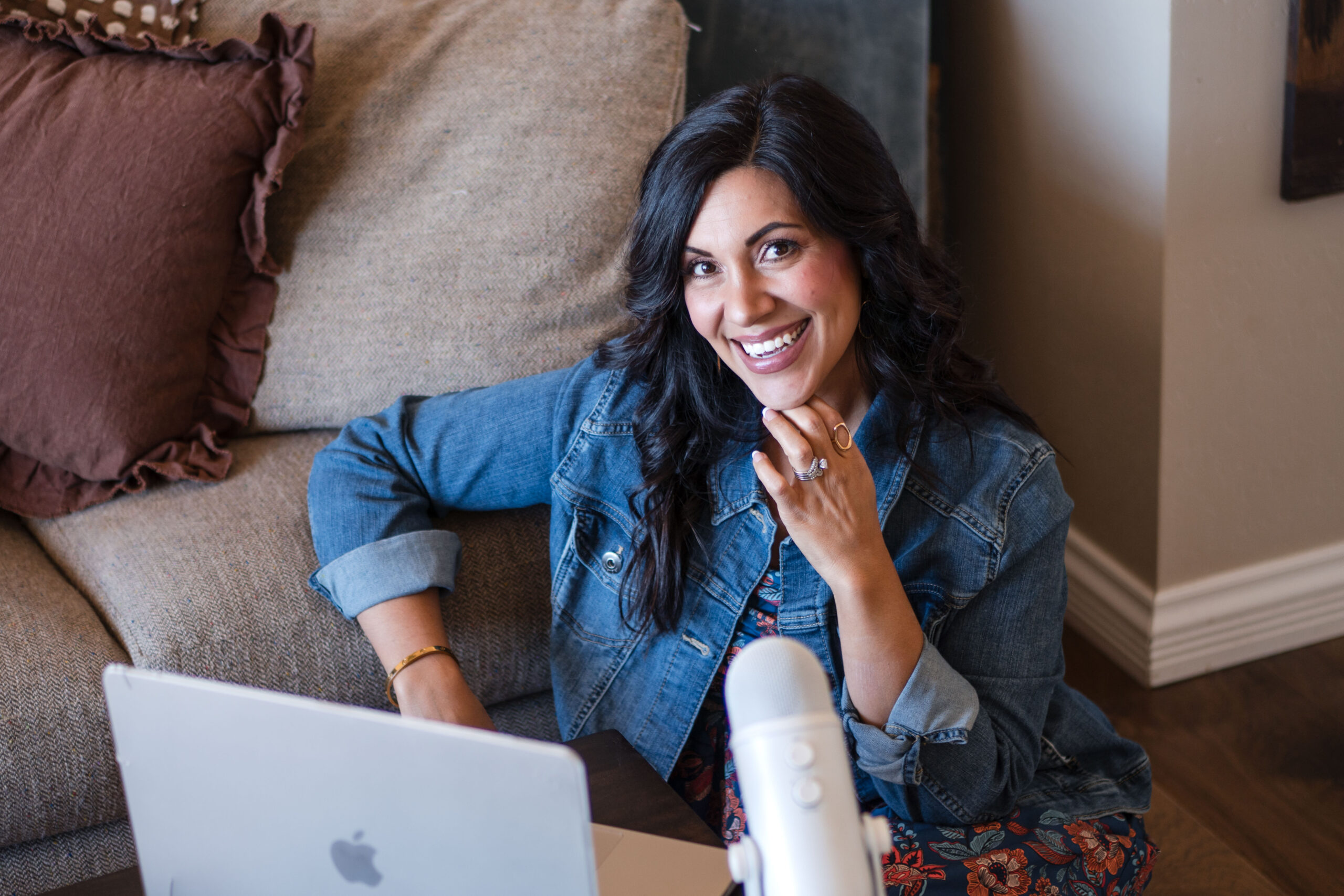
READ MORE
I’m talking to my Podcast to Profit graduate about how her podcast became discoverable around the world after she joined my program.
READ MORE
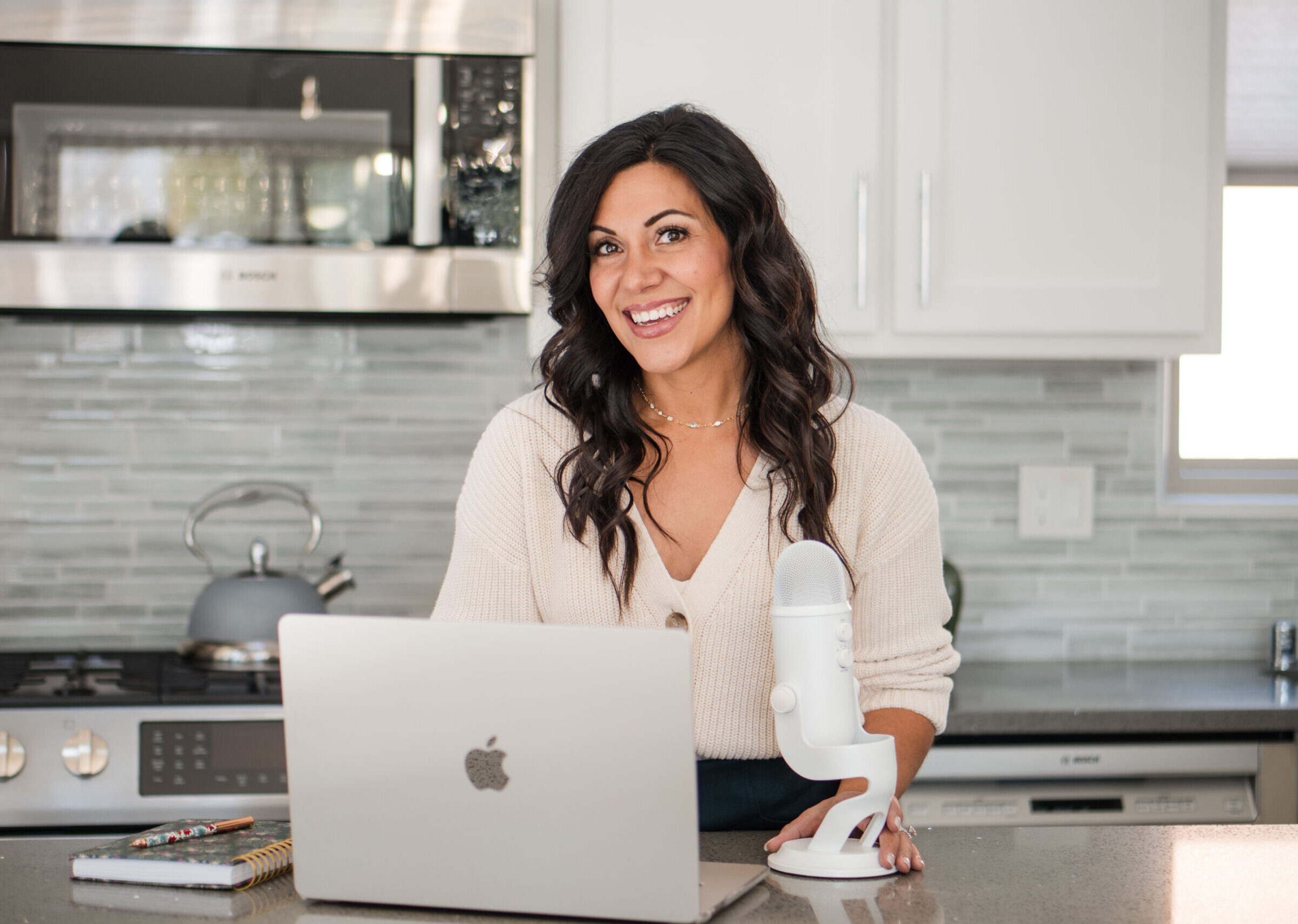
Have you ever wondered how much money a podcast with just a thousand downloads can make? It’s probably more than you think, but not in the method you think.

READ MORE
Join me as I coach my Podcast to Profit student on whether she should rebrand her podcast or stay true to what she already does so well.
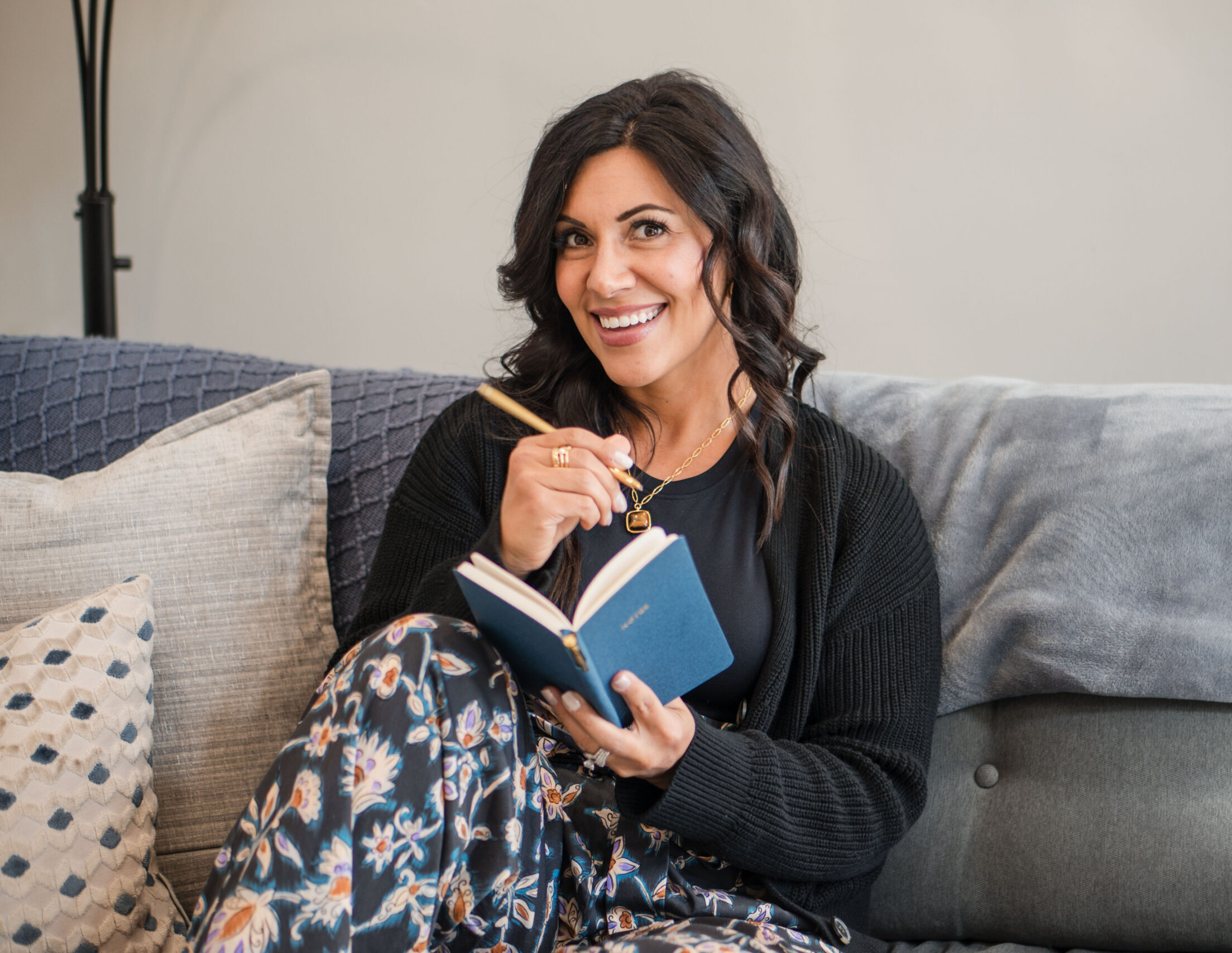
READ MORE
As Christian entrepreneurs, we must pray to God and not run our businesses on our own. We must position God at the center of every decision.
Come Hang Out!
Learn How to Consistently
Make Income With a Podcast
For Faith-Led Entrepreneurs
Join 5-Day Profitable Podcast Bootcamp!
Podcast Launch Checklist
Steps to start and launch a podcast from start to finish
Should You
Start a Podcast?
TAKE THE QUIZ
AND FIND OUT
STEP BY STEP PLAN TO START YOUR ONLINE BUSINESS
Complete Business Blueprint
Is My Group Coaching Program Right For You?
Choose the option below that best describes you!
Have a question?
Ask Stef a question about her resources
or program!
Will podcasting make you money?
Play around with my Profitability Calculator!
Meet Podcast to Profit Alumni
Students and graduates who are profiting from their podcasts
from psalm chapter 18
Spiritual Battle Plan
defeat the enemy, strongholds and spiritual warfare
look around
© STEFANIE GASS LLC 2026 | ALL RIGHTS RESERVED | SITE CREDIT | LEGAL
Come Hang Out!
Come listen to a top 20 podcast for Christians who want to grow a simple, successful online business.
Come listen
to the go-to podcast
So glad you're here!
Visit the resources section and find out which software I personally use and recommend. Become an affiliate, or discover other trusted resources I have to help you succeed on your business and faith journey.
Check out all my recommended resources
including software, affiliates, and freebies.
Read the latest over on the Stef Gass Blog. Tons
of articles to help you succeed in life and business.
Meet Stefanie and learn more about her life, journey, failures and family. Plus, a glimpse of her amazing team.
Book Stef for in-person or virtual events! She will
inspire and educate your audience with her training.
Find out everything your need to feature Stef—bio, photos, and details—ready to inspire and educate your audience
Meet some of the students who are profiting from their podcast
Contact us with questions, concerns,
testimonies, or requests here.
I can't wait to help you get clarity on your calling, grow your business, launch a podcast, build a course, or scale and get visible. Check out the Stefanie Gass School. No more frustration or overwhelm. Just a simple, step-by-step framework to get you where you want to grow.
Get clear on your calling in 4 weeks or less so you
can start your online business with confidence.
Apply for my 6-month group coaching program for podcasters! Build your offer, learn to sell, and scale.
Visit the Stefanie Gass School to discover what step
you're on and and learn which course is right for you!
Launch a podcast in less than 30 days! 12 simple
steps to go from idea to successful podcast.
Let's work together!
WORK WITH ME
Clarify Your Calling
Free Workshop
Watch this workshop and get
clear on your calling so you can start
an online business! Hop on this quick,
35 minute free training and map out
your next steps!
Podcast for Growth
Free Workshop
Watch this workshop and learn how
podcasting works to make money online! Find out why podcasting is the best long-form content outlet and how it can drive more leads than social media.


Leave Comment or Question Below